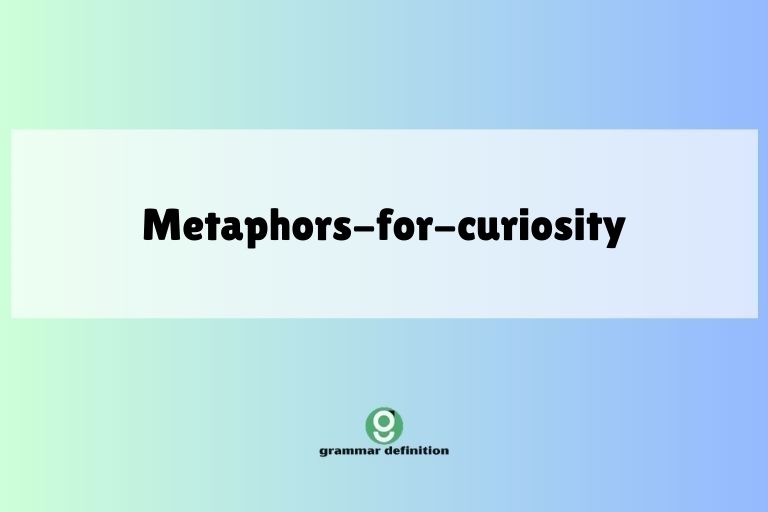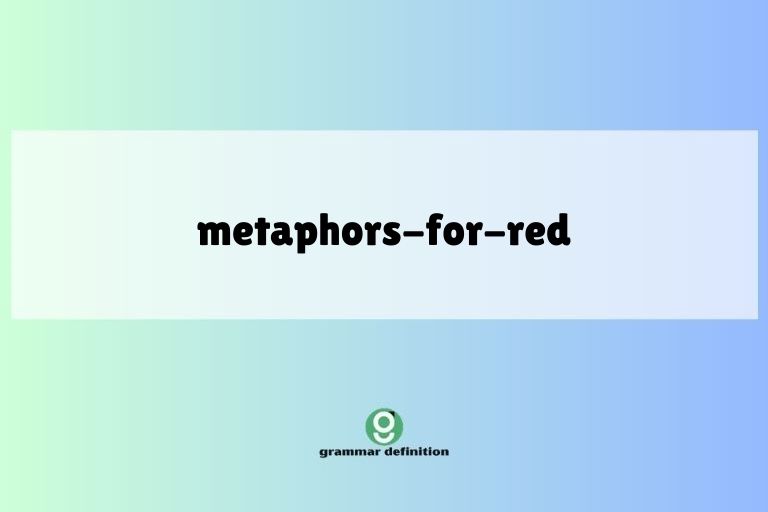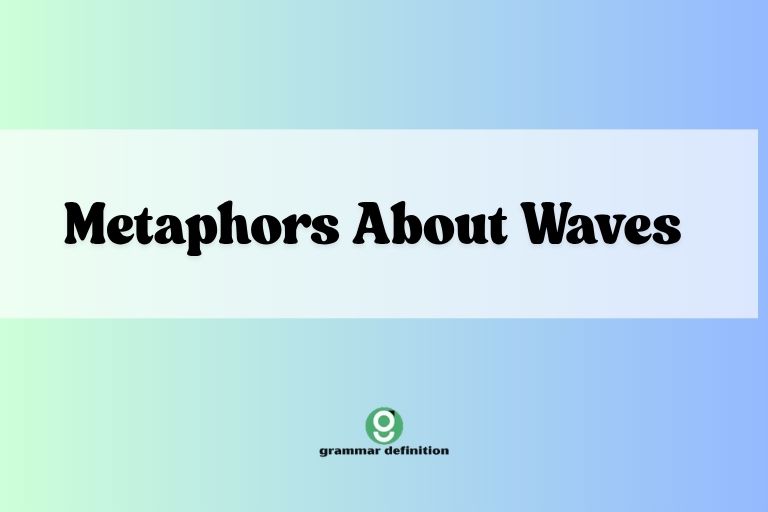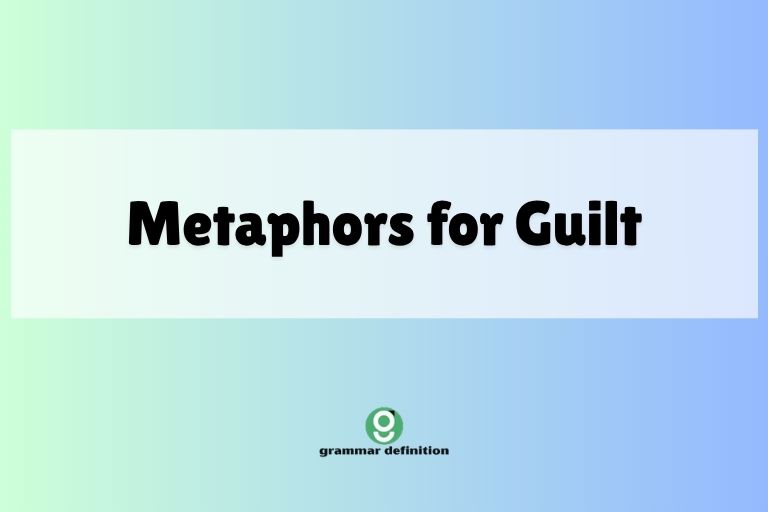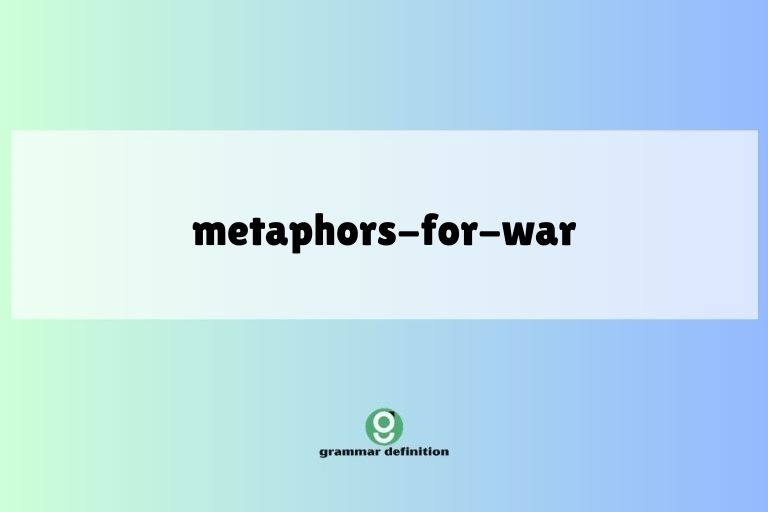Metaphors for Disappointment: Expressing Letdown with Figurative Language
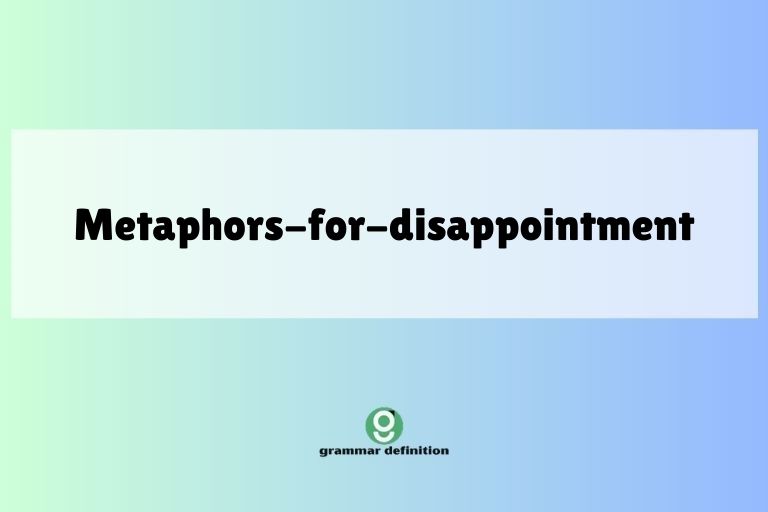
Disappointment is a universal human experience, and the English language offers a rich tapestry of metaphors to express this feeling. Understanding these metaphors not only enhances your vocabulary but also allows you to communicate more vividly and emotionally.
This article explores the diverse range of metaphors used to describe disappointment, their structural elements, and how to use them effectively. Whether you’re an English language learner or a seasoned speaker, this guide will help you navigate the nuanced world of disappointment metaphors.
Table of Contents
- Introduction
- Definition of Metaphor and Disappointment
- Structural Breakdown of Disappointment Metaphors
- Types and Categories of Disappointment Metaphors
- Examples of Disappointment Metaphors
- Usage Rules for Disappointment Metaphors
- Common Mistakes with Disappointment Metaphors
- Practice Exercises
- Advanced Topics in Disappointment Metaphors
- Frequently Asked Questions
- Conclusion
Definition of Metaphor and Disappointment
A metaphor is a figure of speech that directly compares two unrelated things without using “like” or “as.” It asserts that one thing *is* another, creating a vivid and often surprising connection. For example, saying “He is a lion in battle” doesn’t mean he’s literally a lion, but that he possesses the lion’s qualities of courage and strength.
Disappointment, on the other hand, is the feeling of sadness or dissatisfaction that arises when one’s expectations are not met. It’s a common emotional response to unmet goals, failed plans, or unrealized hopes. Because disappointment is an abstract emotion, metaphors are particularly useful in conveying its intensity and nuances.
Structural Breakdown of Disappointment Metaphors
Disappointment metaphors typically involve two key elements: the tenor and the vehicle. The tenor is the subject being described (in this case, disappointment), and the vehicle is the object or concept used to describe it. The effectiveness of a metaphor lies in the relationship between the tenor and the vehicle.
For example, in the metaphor “Her dreams were crushed under the weight of reality,” the tenor is “her dreams,” and the vehicle is “crushed under the weight of reality.” The metaphor works because being crushed suggests a sudden and irreversible destruction, effectively conveying the intensity of the disappointment.
Types and Categories of Disappointment Metaphors
Disappointment metaphors can be categorized based on the type of imagery they evoke. Here are some common categories:
Metaphors of Failure and Defeat
These metaphors often describe disappointment as a loss or a setback. They frequently use imagery of falling, stumbling, or being defeated in a competition.
Metaphors of Loss and Lack
These metaphors emphasize the absence of something desired or expected. They may involve imagery of emptiness, void, or deprivation.
Metaphors of Stagnation and Decay
These metaphors portray disappointment as a state of being stuck or deteriorating. They often use imagery of rot, rust, or withering.
Metaphors of Emptiness and Void
These metaphors focus on the hollowness and lack of fulfillment associated with disappointment. Common images include voids, empty spaces, and barren landscapes.
Metaphors of Burden and Weight
These metaphors describe disappointment as a heavy load or a burden that weighs one down. They use imagery of carrying heavy objects or being burdened by responsibilities.
Metaphors of Weather and Climate
These metaphors use weather conditions to represent disappointment. They might involve imagery of storms, rain, or darkness.
Metaphors of Physical Sensations
These metaphors describe disappointment in terms of physical feelings, such as pain, numbness, or coldness.
Metaphors of Being Broken or Shattered
These metaphors use the imagery of something broken or shattered to represent the feeling of disappointment, suggesting a loss of integrity or hope.
Examples of Disappointment Metaphors
The following tables provide examples of disappointment metaphors categorized by type. Each table includes numerous examples to illustrate the variety and nuance of these expressions.
Table 1: Metaphors of Failure and Defeat
This table showcases metaphors that depict disappointment as a form of failure or defeat, using imagery of falling, losing, and being overcome.
| Metaphor | Explanation |
|---|---|
| His hopes crashed and burned. | Implies a complete and catastrophic failure of expectations. |
| She felt like she’d been knocked down. | Suggests a sudden and forceful setback. |
| The project fell flat on its face. | Describes an utter lack of success. |
| His dreams crumbled to dust. | Indicates a gradual and complete disintegration of aspirations. |
| She was defeated before she even started. | Highlights a sense of inevitability in the failure. |
| The plan went south. | A common idiom for something going wrong. |
| He hit a brick wall. | Represents an insurmountable obstacle. |
| Her efforts were in vain. | Suggests that all her work was for nothing. |
| The initiative tanked. | Describes a significant and abrupt failure. |
| He was left holding the bag. | Suggests being left with the responsibility for a failure. |
| The proposal was dead on arrival. | Indicates that the proposal had no chance of success from the beginning. |
| Her ambitions were shot down. | Conveys a sense of being rejected or thwarted. |
| He lost the battle. | Implies a significant defeat in a competitive situation. |
| The venture went belly up. | Describes a business failure. |
| She was left in the dust. | Suggests being left behind and forgotten. |
| His expectations were dashed. | Indicates a sudden and crushing disappointment. |
| The deal fell through. | Describes a failed agreement or negotiation. |
| He came up short. | Suggests failing to meet a required standard or goal. |
| Her hopes were dashed against the rocks. | Implies a violent and destructive end to her expectations. |
| His efforts were fruitless. | Suggests that his work produced no positive results. |
| The project went down in flames. | Describes a catastrophic failure with highly visible consequences. |
| She stumbled at the last hurdle. | Indicates failure right at the point of near success. |
| His aspirations were nipped in the bud. | Suggests that his dreams were stopped before they could develop. |
| The company flatlined. | Describes a business that has stopped growing or is failing. |
Table 2: Metaphors of Loss and Lack
This table presents metaphors that portray disappointment as a form of loss or lack, emphasizing the absence of something desired or needed.
| Metaphor | Explanation |
|---|---|
| She felt a void in her heart. | Describes a deep sense of emptiness and loss. |
| His efforts yielded a barren harvest. | Suggests that his work produced no positive results. |
| The well of her hope ran dry. | Indicates a complete depletion of optimism. |
| He felt like something was missing. | Describes a vague but persistent sense of incompleteness. |
| Her dreams were just out of reach. | Highlights the frustration of being close but unable to attain a goal. |
| The opportunity slipped through his fingers. | Suggests a missed chance due to carelessness or bad luck. |
| She was left empty-handed. | Indicates that she received nothing despite her efforts. |
| His expectations were left unfulfilled. | Describes a state of not having one’s hopes realized. |
| The promise was just a mirage. | Suggests that something appeared promising but turned out to be an illusion. |
| He was robbed of his chance. | Implies that someone unfairly took away his opportunity. |
| Her efforts were all for naught. | Indicates that her work produced no positive results. |
| He found himself wanting. | Describes a state of lacking something essential. |
| Her aspirations faded away. | Suggests that her dreams gradually disappeared. |
| The prospect turned out to be a pipe dream. | Indicates that the plan was unrealistic and unattainable. |
| He was deprived of the reward. | Implies that he was unfairly denied something he deserved. |
| Her hopes evaporated. | Suggests that her dreams vanished quickly and completely. |
| The prize was just beyond his grasp. | Highlights the frustration of being close but unable to attain a goal. |
| He was left with nothing to show for his efforts. | Indicates that his work produced no tangible results. |
| Her desires went unheeded. | Suggests that her wishes were ignored. |
| He felt a gaping hole in his life. | Describes a profound sense of emptiness and loss. |
| Her expectations remained unmet. | Describes a state of not having one’s hopes realized. |
| He was left wanting more. | Indicates a feeling of dissatisfaction and a desire for something unfulfilled. |
| Her ambitions were never realized. | Suggests that her dreams never came to fruition. |
| The potential remained untapped. | Indicates that the full capabilities were never utilized or achieved. |
Table 3: Metaphors of Stagnation and Decay
This table includes metaphors that depict disappointment as a state of stagnation or decay, using imagery of rot, rust, and withering.
| Metaphor | Explanation |
|---|---|
| His enthusiasm withered. | Suggests a gradual decline in excitement and passion. |
| She felt her spirit rusting away. | Describes a slow deterioration of her inner self. |
| The project stagnated. | Indicates a lack of progress or growth. |
| His passion turned to ashes. | Suggests a complete and irreversible loss of enthusiasm. |
| Her dreams decayed over time. | Describes a gradual deterioration of her aspirations. |
| He felt himself going stale. | Indicates a loss of freshness and vitality. |
| Her motivation rotted from the inside out. | Suggests a deep and pervasive loss of drive. |
| The opportunity soured. | Describes a situation that turned unpleasant or unfavorable. |
| His hopes began to mold. | Implies a sense of decay and neglect. |
| She felt like she was withering on the vine. | Describes a gradual decline in health and vitality. |
| His ambition grew stale. | Indicates a loss of freshness and vitality in his ambition. |
| Her dreams turned to dust. | Suggests a complete and irreversible disintegration of her aspirations. |
| The project started to rot. | Describes a situation that is deteriorating due to neglect or corruption. |
| His enthusiasm faded like an old photograph. | Suggests a gradual and irreversible loss of excitement. |
| She felt her creativity drying up. | Indicates a loss of inspiration and artistic ability. |
| His spirit dulled over time. | Describes a gradual loss of enthusiasm and vitality. |
| Her aspirations became tarnished. | Suggests a loss of purity and value in her dreams. |
| The initiative lost its luster. | Describes a situation that has become less appealing or exciting. |
| His drive eroded away. | Suggests a gradual decline in motivation and ambition. |
| She felt her potential going to waste. | Indicates a sense of missed opportunities and unfulfilled capabilities. |
| His zeal diminished over time. | Describes a gradual loss of passion and enthusiasm. |
| Her hopes turned to ashes in her mouth. | Suggests a bitter and disappointing end to her expectations. |
| The endeavor went to seed. | Describes a project that has declined and deteriorated due to neglect. |
| His passion became jaded. | Indicates a loss of enthusiasm due to overexposure or disappointment. |
Table 4: Metaphors of Emptiness and Void
This table provides metaphors that focus on the emptiness and lack of fulfillment associated with disappointment, using images of voids, empty spaces, and barren landscapes.
| Metaphor | Explanation |
|---|---|
| She felt an emptiness inside. | Describes a deep sense of hollowness and lack of fulfillment. |
| His heart was a barren wasteland. | Suggests a complete lack of emotion and hope. |
| She stared into the abyss of her disappointment. | Indicates a profound and overwhelming sense of despair. |
| He felt a void where his dreams used to be. | Describes a significant absence of hope and aspiration. |
| Her life felt like an empty shell. | Suggests a lack of substance and meaning. |
| He was adrift in a sea of nothingness. | Indicates a sense of isolation and lack of purpose. |
| She felt like a ghost in her own life. | Describes a sense of detachment and disconnection. |
| His world turned into a vacuum. | Suggests a complete absence of joy and fulfillment. |
| She found herself in a desolate landscape. | Indicates a feeling of loneliness and despair. |
| He felt a hollow ache in his soul. | Describes a deep and persistent sense of emptiness. |
| Her future seemed like a blank canvas. | Suggests a lack of direction and purpose. |
| He was lost in a labyrinth of despair. | Indicates a feeling of confusion and hopelessness. |
| She felt like an empty vessel. | Describes a lack of inner substance and fulfillment. |
| His spirit was a ghost town. | Suggests a complete absence of life and vitality. |
| She felt a chasm open up inside her. | Describes a profound and overwhelming sense of loss. |
| He was trapped in a vacuum of disappointment. | Indicates a feeling of isolation and lack of fulfillment. |
| Her dreams dissolved into thin air. | Suggests a complete and irreversible disappearance of her aspirations. |
| He felt like a shadow of his former self. | Describes a diminished and weakened version of himself. |
| Her aspirations turned to vapor. | Suggests that her dreams vanished quickly and completely. |
| He was stranded in a desert of despair. | Indicates a feeling of isolation and hopelessness. |
| She felt a gaping hole in her heart. | Describes a profound sense of emptiness and loss. |
| His hopes faded into oblivion. | Suggests a complete and irreversible disappearance of his expectations. |
| She was left in a void of unfulfilled dreams. | Indicates a significant absence of realized aspirations. |
| He felt like a shell of his former self. | Describes a diminished and weakened version of himself. |
Table 5: Metaphors of Burden and Weight
This table contains metaphors that describe disappointment as a heavy load or a burden that weighs one down, using imagery of carrying heavy objects or being burdened by responsibilities.
| Metaphor | Explanation |
|---|---|
| She carried the weight of her disappointment. | Describes the emotional burden of unmet expectations. |
| He felt weighed down by his failures. | Suggests that his mistakes were a heavy burden on his mind. |
| She was burdened by her unfulfilled dreams. | Indicates that her unrealized aspirations were a source of stress. |
| He felt the crushing weight of his dashed hopes. | Describes the overwhelming burden of shattered expectations. |
| She was carrying a heavy load of regret. | Suggests that her remorse was a significant emotional burden. |
| He felt the burden of his unrealized potential. | Indicates that his untapped capabilities were a source of frustration. |
| She was weighed down by her past disappointments. | Describes the cumulative effect of past failures on her current state. |
| He carried the cross of his unmet expectations. | Suggests a heavy and sacrificial burden of unfulfilled hopes. |
| She felt the heavy hand of fate. | Indicates a sense of being controlled by an oppressive destiny. |
| He was laden with the baggage of his failures. | Describes the emotional burden of past mistakes and disappointments. |
| She carried the yoke of her unachieved goals. | Suggests a heavy and burdensome responsibility to fulfill her aspirations. |
| He felt the weight of the world on his shoulders. | Indicates a feeling of overwhelming responsibility and stress. |
| She was burdened by the albatross of her disappointment. | Describes a persistent and inescapable burden of unmet expectations. |
| He carried the heavy heart of his unrealized dreams. | Suggests a deep and emotional burden of unfulfilled aspirations. |
| She felt the leaden weight of her dashed hopes. | Indicates an oppressive and disheartening burden of shattered expectations. |
| He was weighed down by the anchor of his past failures. | Describes a persistent and restrictive burden of past mistakes. |
| She bore the heavy burden of her unmet expectations. | Suggests a substantial and difficult load of unfulfilled hopes. |
| He felt the crushing weight of his shattered dreams. | Indicates an overwhelming and devastating burden of destroyed aspirations. |
| She carried the heavy baggage of her past regrets. | Describes the emotional burden of past mistakes and disappointments. |
| He was burdened by the weight of his lost opportunities. | Suggests that his missed chances were a heavy burden on his mind. |
| She felt the oppressive weight of her unfulfilled potential. | Indicates that her untapped capabilities weighed her down. |
| He carried the heavy cross of his unmet goals. | Suggests a substantial and difficult burden of unfulfilled ambitions. |
| She was weighed down by the millstone of her disappointments. | Describes a persistent and burdensome load of past failures. |
| He felt the crushing weight of his unrealized expectations. | Indicates an overwhelming and disheartening burden of unmet hopes. |
Usage Rules for Disappointment Metaphors
When using metaphors for disappointment, it’s important to consider the following rules:
- Clarity: Ensure that the metaphor is easily understandable and relevant to the context. Avoid overly obscure or complex metaphors that might confuse your audience.
- Consistency: Maintain consistency in your metaphorical language. Avoid mixing metaphors that clash or create illogical imagery.
- Appropriateness: Choose metaphors that are appropriate for the tone and style of your writing or speech. Avoid using overly dramatic or exaggerated metaphors in formal contexts.
- Originality: While common metaphors can be effective, strive for originality to make your writing more engaging and memorable. Consider creating your own unique metaphors that capture the specific nuances of the disappointment you’re describing.
Common Mistakes with Disappointment Metaphors
Here are some common mistakes to avoid when using disappointment metaphors:
- Mixed Metaphors: Combining two or more incompatible metaphors.
- Clichés: Overusing tired and unoriginal metaphors.
- Inappropriate Tone: Using metaphors that are too dramatic or informal for the context.
- Lack of Clarity: Using metaphors that are difficult to understand or interpret.
Table 6: Correct vs. Incorrect Examples
This table illustrates common mistakes in using metaphors for disappointment, with examples of both incorrect and corrected sentences.
| Incorrect | Correct | Explanation |
|---|---|---|
| The project was a rollercoaster that hit a brick wall and sailed smoothly. | The project was a rollercoaster that hit a brick wall. | Avoid mixing metaphors (rollercoaster and sailing smoothly). |
| Her dreams were a pie in the sky. | Her dreams were unrealistic and unattainable. | Avoid clichés; use more original language. |
| He was drowning in a sea of sunshine after the failure. | He was drowning in a sea of despair after the failure. | Ensure the metaphor aligns with the context of disappointment. |
| The disappointment was like a purple elephant dancing on the moon. | The disappointment was a heavy weight on his heart. | Use metaphors that are clear and relevant to the emotion. |
Practice Exercises
Test your understanding of disappointment metaphors with these exercises.
Exercise 1: Identifying Metaphors
Identify the metaphor in each sentence and explain what it means.
- His hopes were dashed against the rocks.
- She felt a void in her heart after the news.
- The project went down in flames.
- His enthusiasm withered like a dying plant.
- She carried the weight of her disappointment.
- The opportunity slipped through his fingers.
- He hit a brick wall in his career.
- Her dreams turned to dust.
- He was left empty-handed.
- The promise was just a mirage.
Table 7: Exercise 1 Answers
| Question | Answer |
|---|---|
| 1. His hopes were dashed against the rocks. | Metaphor: Dashed against the rocks. Meaning: His hopes were violently and completely destroyed. |
| 2. She felt a void in her heart after the news. | Metaphor: Void in her heart. Meaning: She felt a deep sense of emptiness and loss. |
| 3. The project went down in flames. | Metaphor: Went down in flames. Meaning: The project failed catastrophically. |
| 4. His enthusiasm withered like a dying plant. | Metaphor: Withered like a dying plant. Meaning: His enthusiasm gradually declined and disappeared. |
| 5. She carried the weight of her disappointment. | Metaphor: Carried the weight. Meaning: She felt burdened by her disappointment. |
| 6. The opportunity slipped through his fingers. | Metaphor: Slipped through his fingers. Meaning: He missed the opportunity. |
| 7. He hit a brick wall in his career. | Metaphor: Hit a brick wall. Meaning: He encountered an insurmountable obstacle. |
| 8. Her dreams turned to dust. | Metaphor: Turned to dust. Meaning: Her dreams were completely destroyed. |
| 9. He was left empty-handed. | Metaphor: Empty-handed. Meaning: He received nothing. |
| 10. The promise was just a mirage. | Metaphor: Just a mirage. Meaning: The promise was an illusion. |
Exercise 2: Using Metaphors
Rewrite the following sentences using a metaphor for disappointment.
- He was very disappointed when he didn’t get the job.
- She felt sad after her plans were canceled.
- The project failed completely.
- He lost all hope after the setback.
- She was very discouraged by the criticism.
- His efforts were unsuccessful.
- She felt empty after the event.
- He was burdened by his failures.
- Her expectations were not met.
- He felt like he had no future.
Table 8: Exercise 2 Suggested Answers
| Question | Suggested Answer |
|---|---|
| 1. He was very disappointed when he didn’t get the job. | He felt like his hopes had crashed and burned when he didn’t get the job. |
| 2. She felt sad after her plans were canceled. | She felt a void in her heart after her plans were canceled. |
| 3. The project failed completely. | The project went down in flames. |
| 4. He lost all hope after the setback. | His well of hope ran dry after the setback. |
| 5. She was very discouraged by the criticism. | She felt weighed down by the criticism. |
| 6. His efforts were unsuccessful. | His efforts yielded a barren harvest. |
| 7. She felt empty after the event. | She felt like an empty shell after the event. |
| 8. He was burdened by his failures. | He carried the heavy weight of his failures. |
| 9. Her expectations were not met. | Her expectations remained unfulfilled. |
| 10. He felt like he had no future. | His future seemed like a blank canvas. |
Advanced Topics in Disappointment Metaphors
For advanced learners, consider exploring the cultural and historical contexts of disappointment metaphors. Different cultures may use different metaphors to express similar emotions.
Additionally, the use of metaphors can evolve over time, reflecting changes in society and language.
Another advanced topic is the use of extended metaphors, where a single metaphor is developed and expanded throughout a piece of writing. This can create a powerful and cohesive effect, but it requires careful planning and execution.
Frequently Asked Questions
Here are some frequently asked questions about metaphors for disappointment.
- What is the difference between a metaphor and a simile?
A metaphor directly compares two things by stating that one thing *is* another, while a simile uses “like” or “as” to make a comparison. For example, “He is a lion” (metaphor) vs. “He is like a lion” (simile).
- Why are metaphors useful for expressing disappointment?
Metaphors can convey the intensity and nuances of disappointment in a way that literal language often cannot. They create vivid imagery and allow for a more emotional connection with the reader or listener.
- How can I avoid using clichés in my metaphors?
Read widely, pay attention to the metaphors used by skilled writers, and try to come up with your own original comparisons. Avoid using phrases that you’ve heard many times before.
- Is it okay to mix metaphors?
Generally, it’s best to avoid mixing metaphors, as it can create confusing or illogical imagery. However, in some cases, a deliberately mixed metaphor can be used for comedic effect or to create a sense of disorientation.
- How can I improve my use of metaphors?
Practice using metaphors in your writing and speaking. Pay attention to the metaphors used by others and analyze their effectiveness. Get feedback from others on your use of metaphors.
- Are some types of metaphors more effective than others for expressing disappointment?
The effectiveness of a metaphor depends on the context and the audience. However, metaphors that evoke strong emotions or create vivid imagery are often particularly effective for expressing disappointment.
- Can metaphors be misinterpreted?
Yes, metaphors can be misinterpreted if they are not clear or if the audience does not share the same cultural or linguistic background as the speaker or writer. It’s important to choose metaphors that are appropriate for your audience.
- How do cultural differences affect the use of disappointment metaphors?
Different cultures may have different ways of understanding and expressing emotions, which can influence the types of metaphors that are used. For example, some cultures may emphasize stoicism in the face of disappointment, while others may be more expressive.
Conclusion
Metaphors are powerful tools for expressing the complex emotion of disappointment. By understanding the different types of disappointment metaphors and how to use them effectively, you can enhance your communication skills and connect with others on a deeper level.
Remember to strive for clarity, consistency, and originality in your metaphorical language.
Continue to explore the rich world of figurative language and practice using metaphors in your daily life. The more you experiment with metaphors, the more skilled you will become at using them to express your thoughts and feelings with precision and impact.
By mastering the art of metaphor, you can transform your language from the ordinary to the extraordinary.

